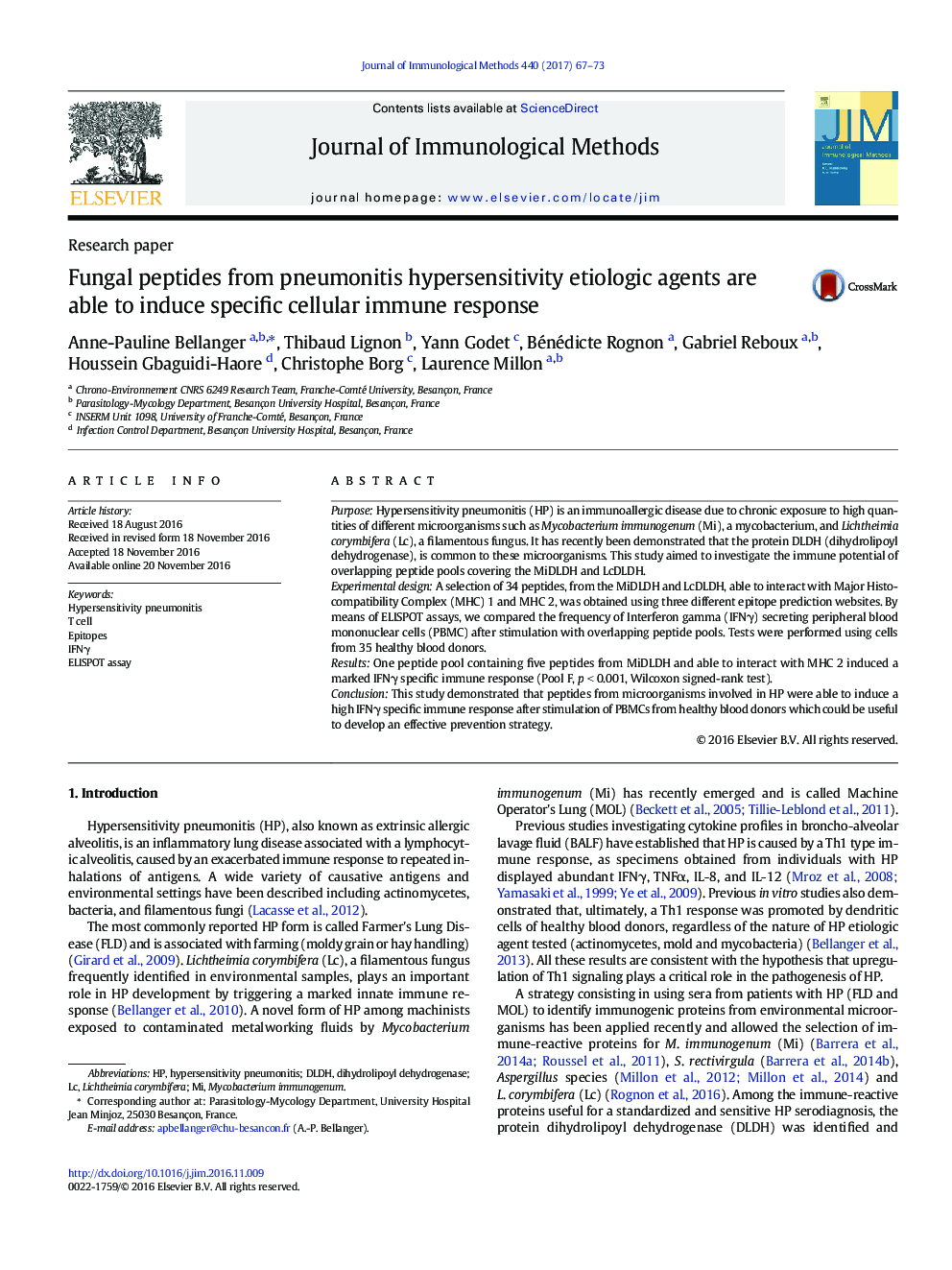| کد مقاله | کد نشریه | سال انتشار | مقاله انگلیسی | نسخه تمام متن |
|---|---|---|---|---|
| 5522019 | 1545669 | 2017 | 7 صفحه PDF | دانلود رایگان |
- The protein DLDH is common to agents of HP from different phylogenetic families
- Peptides ability to induce IFNγ upon stimulation of PBMC was assessed by ELISPOT
- A pool of peptides from MiDLDH induced a marked IFNγ specific immune response
- Marked IFNγ responses in blood donors suggest a previous environmental exposure
- Cross reactive mechanisms between environmental antigens are highly probable
PurposeHypersensitivity pneumonitis (HP) is an immunoallergic disease due to chronic exposure to high quantities of different microorganisms such as Mycobacterium immunogenum (Mi), a mycobacterium, and Lichtheimia corymbifera (Lc), a filamentous fungus. It has recently been demonstrated that the protein DLDH (dihydrolipoyl dehydrogenase), is common to these microorganisms. This study aimed to investigate the immune potential of overlapping peptide pools covering the MiDLDH and LcDLDH.Experimental designA selection of 34 peptides, from the MiDLDH and LcDLDH, able to interact with Major Histocompatibility Complex (MHC) 1 and MHC 2, was obtained using three different epitope prediction websites. By means of ELISPOT assays, we compared the frequency of Interferon gamma (IFNγ) secreting peripheral blood mononuclear cells (PBMC) after stimulation with overlapping peptide pools. Tests were performed using cells from 35 healthy blood donors.ResultsOne peptide pool containing five peptides from MiDLDH and able to interact with MHC 2 induced a marked IFNγ specific immune response (Pool F, p < 0.001, Wilcoxon signed-rank test).ConclusionThis study demonstrated that peptides from microorganisms involved in HP were able to induce a high IFNγ specific immune response after stimulation of PBMCs from healthy blood donors which could be useful to develop an effective prevention strategy.
Journal: Journal of Immunological Methods - Volume 440, January 2017, Pages 67-73
